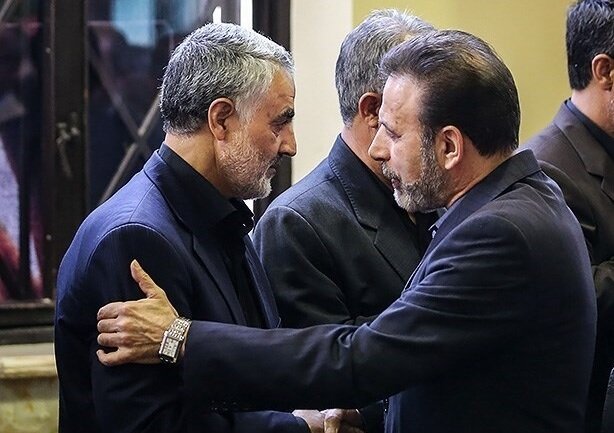
TEHRAN - Mahmoud Vaezi, the Iranian president’s chief of staff, has said that the main response of Iran to the assassination of Lt. General Qassem Soleimani would be the full withdrawal of the U.S. forces from the region.
Vaezi said that Iran has responded militarily to the assassination of General Soleimani in an American drone strike last year and now it pursues the strategy of pushing the U.S. forces out of the region.
“In terms of the military response, you definitely know that the Islamic Republic of Iran poured missiles down on the American base involved in the assassination of martyr Soleimani. This targeted attack sent a clear message to the Americans that attacking the Islamic Republic of Iran and crossing its red lines will certainly not pass without a response,” Vaezi said in an interview with Al-Ahed News.
He added, “However, as mentioned earlier, we view the main response to this crime as paving the way for a complete U.S. withdrawal from the region. Our basic strategy in the region, which we always made known to neighboring states, is for those countries to ensure security for this region and confront foreign interference. The Hormuz peace plan announced by President Rouhani at the United Nations remains on the table, and we believe that it will be achieved with the help of regional states. We believe that through regional cooperation, we can establish peace and stability, and there is no need for foreigners to be present in the region. The presence of foreigners in the region has so far caused nothing but destruction and wars. We have always adopted this strategy, and after the martyrdom of Soleimani, we became more determined to achieve it.”
The Iranian official praised Soleimani’s role in the war on terrorism, underlining that the Iranian commander had played a “very clear” role in combating terrorism and supporting the peoples of the region in confronting terrorist groups.
“When the terrorists occupied two-thirds of Syrian territory, the siege they imposed was so severe that we witnessed bombings and terrorist operations near Damascus and near Syrian government institutions. The situation in Iraq was very similar to that of Syria, where Daesh occupied most of the country, and the level of insecurity peaked. The images of the crimes committed by terrorists in these two countries, and of course in other parts of the world, have not yet been erased from the memory of the countries of the region. Whoever wants to realize the role of the Islamic Republic of Iran and martyr Qassem Soleimani in the region, must compare the images during those days when terrorism dominated the region with the situation today. The defeat of Daesh was the peak of the resistance in the region, and this would not have been possible without martyr General Soleimani and his field command,” Vaezi continued.
The Iranian president’s chief of staff pointed out that General Soleimani pursued the path of resistance against arrogance for the sake of God and that this path will not come to an end with the martyrdom of General Soleimani.
“In Islam, we do not believe that martyrdom is a conclusion or an end, for martyrdom makes the path to the truth stronger, more dynamic, and higher. Although Hajj Qassem Soleimani was a hero in fighting terrorism and opposing arrogance, his martyrdom does not mean weakening the axis of resistance. Ironically, thanks to his pure blood, the peoples of the region woke up today, and the axis of resistance has become stronger than ever,” Vaezi noted.
The Iranian official also stated that the assassination of General Soleimani broke the backbone and domination of his fake and weak killers.
“In fact, we believe that his martyrdom broke the backbone and dominance of his fake and weak killers. When a country that claims to be a superpower in the world assassinates our military commander in such a treacherous and cowardly manner during an official diplomatic tour, it means that first, you were not a worthy opponent, and second, you are against his legacy. The legacy of martyr Soleimani is clearly evident today, not only in the region but in the whole world, especially since he was the first enemy of the terrorists who had turned the world into an insecure place,” Vaezi stated.
TAGS

No comments:
Post a Comment